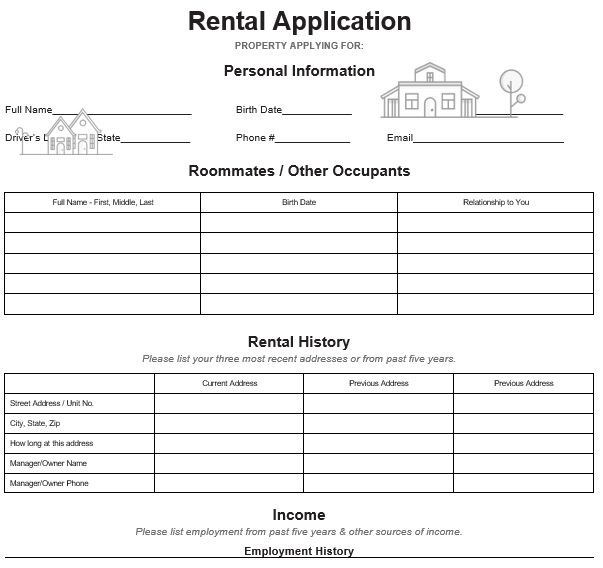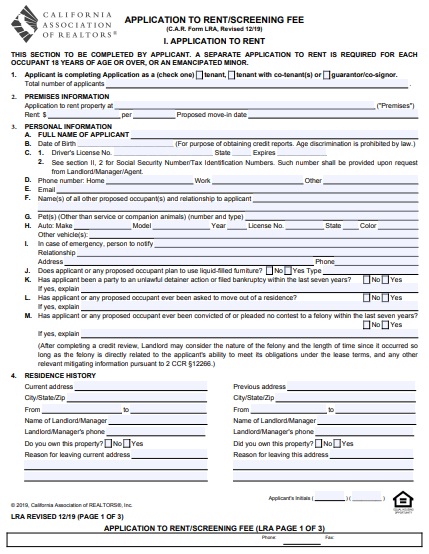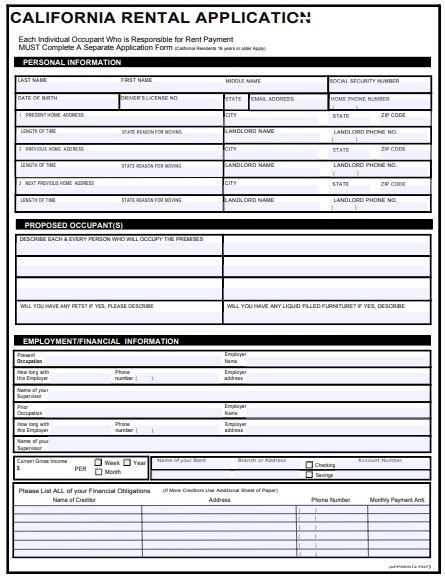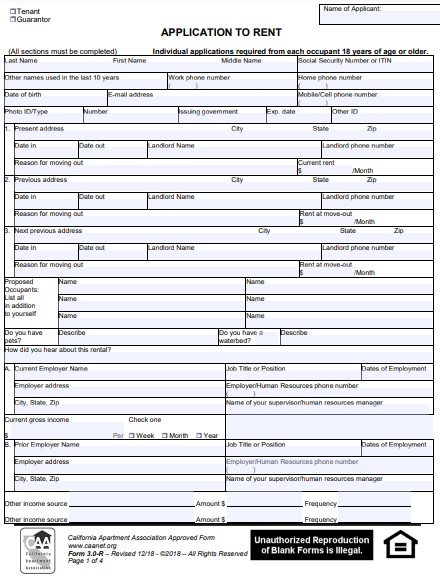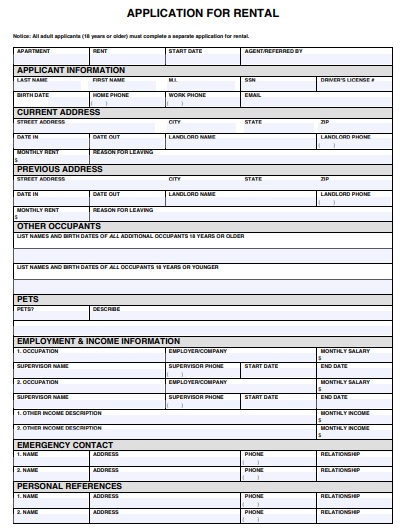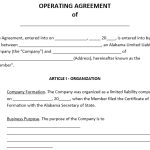- A lease application
- A rental lease application
- A residential lease/residential rental application
- A tenant application
- An application for a rental property
Table of Contents
Criteria for screening tenants:
Here is the criteria for screening prospective tenants by landlords;- Investigate the applicant’s credit history
- Inquire whether or not the prospective tenant has any criminal offenses on their record
- Assess a past rental and eviction history to find out whether the applicant has a positive rental history
- Contact information of current and past employer
- Sex offender status
- For assurance, verify the prospective tenant’s employment and income that whether they have the means to pay rent.
States laws in California:
Here are the state laws that affect the rental application form process in California;Application fee
On the basis of the consumer price index and adjust inflation, California state laws set a maximum rental application fee. So, the purpose of the non-refundable rental application fee is not to make profits. It just covers the costs associated with screening the applicant.Important considerations
- The screening fee shouldn’t exceed the prospective landlord’s actual out-of-pocket costs of running a background check.
- The property owner should give each applicant with a written receipt upon payment of the application screening fee.
- The landlord should return any amount of the screening fee in case they don’t run a background check or credit check on the applicant.
- The property owner or their agent are legally prohibited from charging an applicant an application fee when they know that no rental units are currently available within a reasonable period.
- The applicant has right to receive a copy of the credit report when he pays an application fee.
Security deposit
According to the California tenancy laws (Cal. Civ. Code & 1950.5), a security deposit refers to any payment, deposit, fee, or charge that is imposed at the beginning of the rental agreement. A security deposit can be used to reimburse the landlord for costs associated with processing a new tenant. The security deposit may come in handy for the following purposes;- Compensation of the landlord for a tenant’s default in rent payment
- To mend any damages that are caused to the rental unit
- To cater for cleaning of the residential property upon termination of the rental/lease agreement
- Under the rental agreement, to remedy future defaults by the tenant in any obligation

